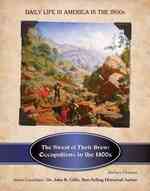- ホーム
- > 洋書
- > 英文書
- > History / World
Full Description
Late Modern Palestine looks at the ways in which the relationship between the subject and representation and the political problematic of postcolonial late modernity is articulated in the context of the Palestinians' struggle for liberation. Junko-Aikio provides a rich, theoretically and empirically, and in part also visually grounded study of the complex ways in which ordinary Palestinians face, negotiate and resist multiple regimes of power and desire in the context of everyday life in the West Bank and Gaza.
The volume examines the early years of the second Palestinian uprising, an intifada, whose political status remains highly disputed. The book examines the ways in which Palestinian politics during the second intifada has been entangled with the broader social and political changes that are associated with postcolonial late modernity. It is argued that the dislocation between modern colonial and late modern/postcolonial regimes of power and subjectivity greatly complicates the map of power and resistance in contemporary Palestine, and also renders articulation of national unity and hegemonic political strategy increasingly unlikely.
This work will be of great interest to students and scholars of Middle East Studies, Postcolonial Studies, International Relations, Political Sociology, Critical Security Studies, and Political Theory.
Contents
Introduction: Palestine and the politics of postcolonial late modernity. 'Representing' the second intifada - a note on practice. National Liberation and the 'Great Disillusion'. (Post)colonial Palestine? Reframing the Subject in Palestine Studies Chapter 1: Late modern subjects of colonial occupation. The first intifada. The second intifada. Liberal-nationalist discourses and the return to national unity. Palestine in a state of exception. Late modern subjects of colonial occupation Chapter 2: Hybrid resistance: The politics of Gaza Beach. Gaza Beach. The shifting aesthetics of Palestinian resistance. Geographies of occupation and topologies of resistance. The hoping subject Chapter 3: Postcolonising Palestine through state-building. From a liberation struggle to a state without liberation. The state and cultures of resistance. Postcolonial politics in Palestine Chapter 4: Mobile phones and the rise of neoliberalism. A short history of telecommunications in Palestine. The nationalist strategy: One voice, one Jawwal. Expecting quality, not equality. Subaltern militancy and corporate power. Resistance in a complex world Chapter 5: Transnational political discourses and the aesthetics of living against occupation. Late Modernity and the "Crisis of the Left". Humanitarianism, Islamism, and the question of hegemony. Suleiman and the disappearance of the collective subject. Beyond Unity: The aesthetics of living against occupation Conclusions: The differend of the 'Palestinian Spring'. The empty space of politics proper. A spring of redemption and romance. The Palestinian differend. ...After politics and representation: justice








